What has gone wrong at Plymouth Argyle?
In May 2023, Plymouth Argyle won League One with a club record 101 points, defeating Ipswich and Sheffield Wednesday.
It was the conclusion of a desire to return the Pilgrims, the heartbeat of England’s largest city without a top-flight football team, to the Championship after 13 seasons in the English Football League’s lower tiers.
But after two and a half years, Argyle sit at the bottom of League One, with their fourth permanent head coach in less than two years and a six-game losing streak.
So what has gone wrong?
‘Two years of poor decision making’
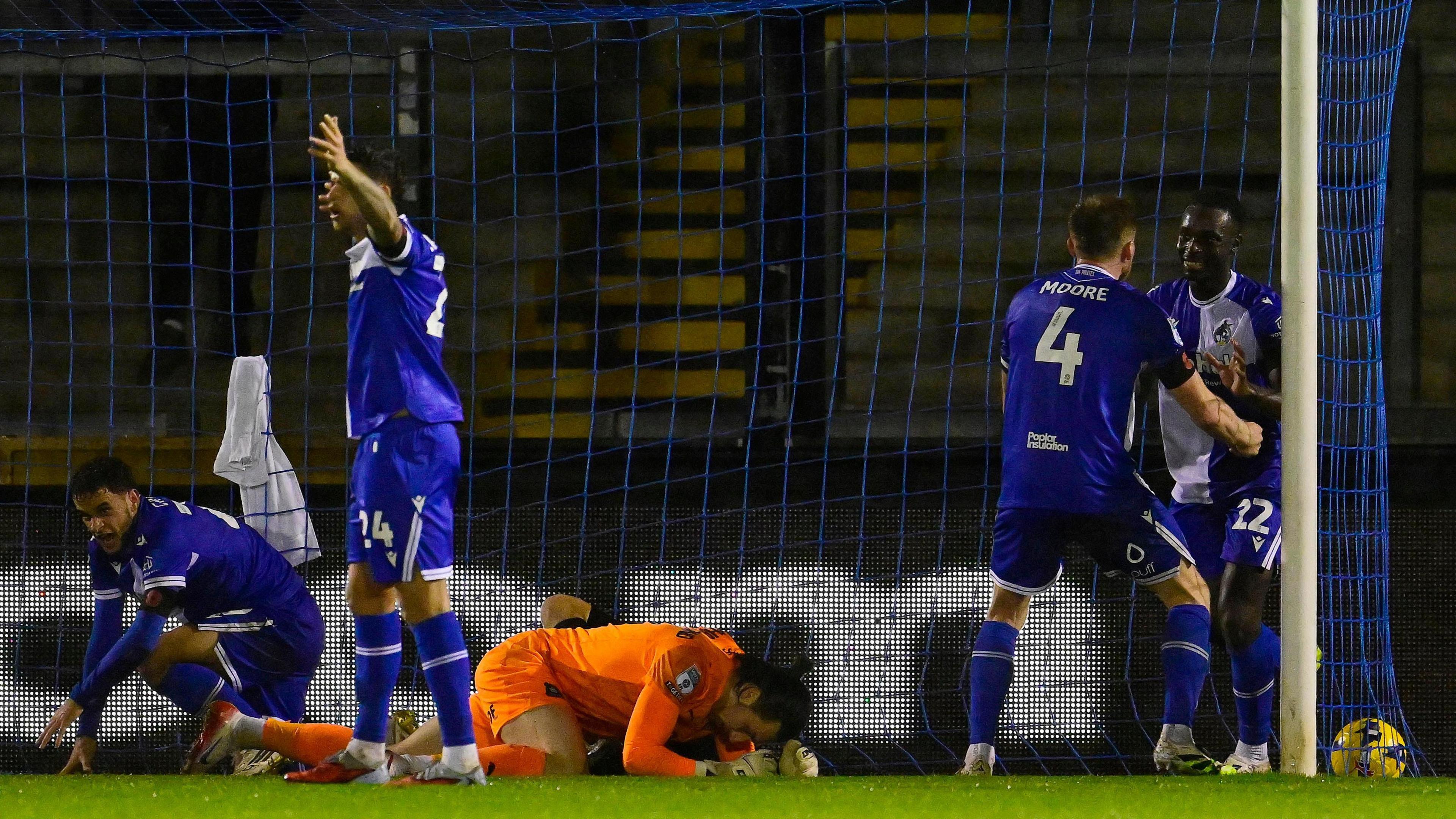 IMAGE SOURCE, SHUTTERSTOCK
IMAGE SOURCE, SHUTTERSTOCKA stoppage-time goalkeeping error saw 10-man Argyle lose 1-0 at Bristol Rovers in the EFL Trophy in their last match
“It’s been two years of poor decision-making,” says Joe Bell, presenter of the Green and White podcast.
When Steven Schumacher resigned his position as head coach to join Stoke City in December 2023, Argyle were 16th in the Championship, four points above the relegation zone, with seven wins in 22 games.
They finished the season ahead by a point with only five more wins, three of which came under caretaker management after Schumacher’s replacement, Ian Foster, a former England junior coach, left the club following an ill-fated three-month tenure.
“You can forgive them perhaps for the Foster appointment,” adds Bell, who had seen his team turn to the inexperienced Schumacher with amazing success.
“But to then turn the shotgun on ourselves the summer after we’d survived, and to choose Wayne Rooney, was a huge mistake on everyone’s behalf.
“It wasn’t for the want of Wayne’s best efforts, but for a data-driven club there wasn’t a shred of data that suggested Wayne Rooney was the right fit for the role, or even worthy of an interview for the role frankly.”
Changes in leadership
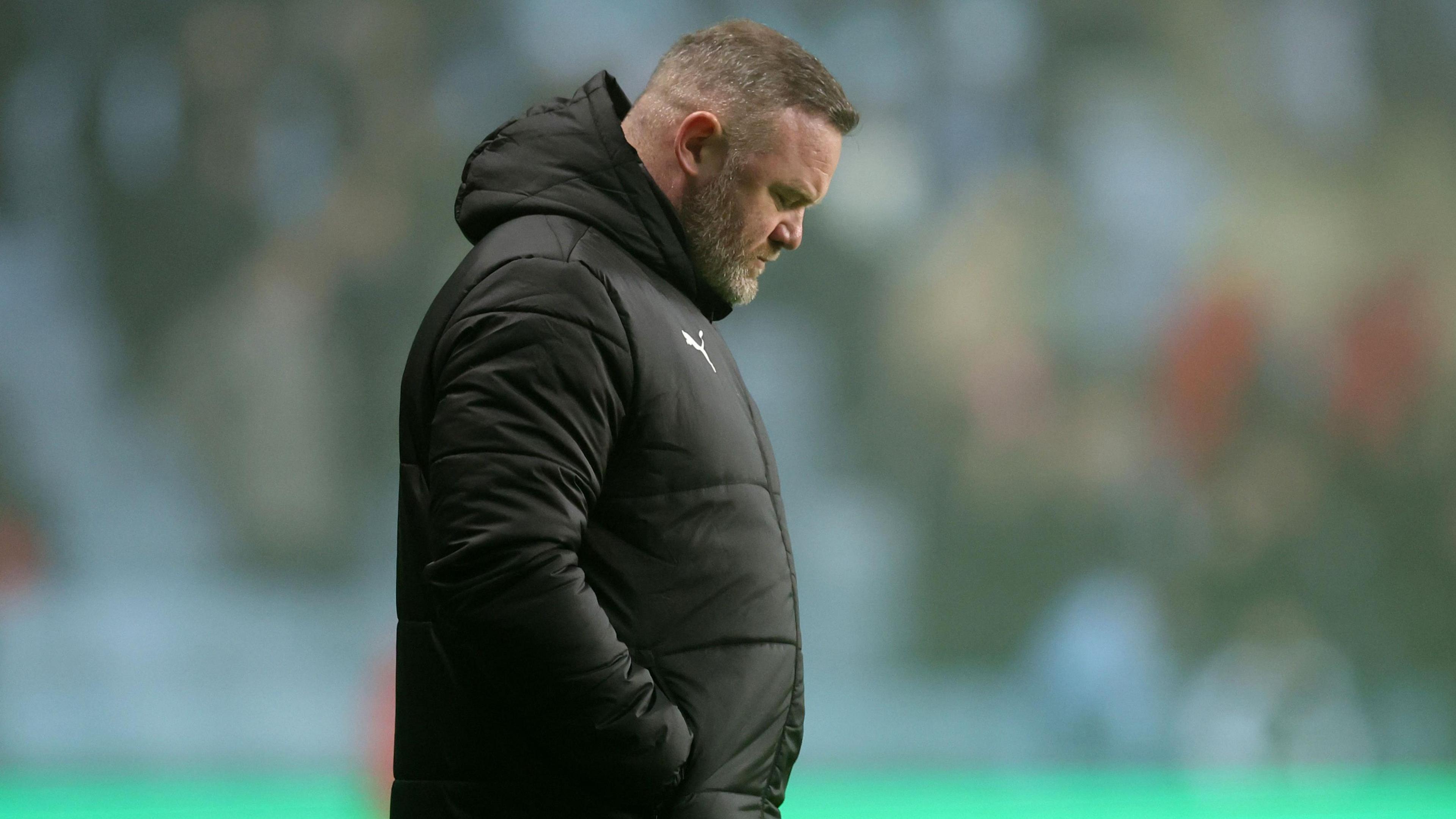 IMAGE SOURCE, GETTY IMAGES
IMAGE SOURCE, GETTY IMAGESWayne Rooney’s time in charge at Plymouth Argyle last year ended in his resignation on 31 December
Wayne Rooney. When the former England captain was named Foster’s permanent successor in the summer of 2024, he brought the limelight to Home Park.
That was despite having a disastrous season as Birmingham City manager the previous season, when they dropped from a play-off spot to finishing one point behind the Pilgrims in the final relegation spot.
He won only four games and left on New Year’s Eve, as a club that had been praised for its foresight and strategic thinking was chastised for what some saw as being swayed by the allure of a big name and the prospect of a Netflix-style documentary that could propel the club to a global audience.
“I think the last two or three years really showed them reacting to situations rather than being proactive,” says BBC Radio Devon’s Alan Richardson, who has covered the club for more than 20 years across all three categories of the EFL.
Since the beginning of the year, Argyle has had two directors of football, is on their second chief executive, hired their first head of football operations, and is seeking for their third head of recruitment after Tom Randle quit last month.
“Randle was someone Miron Muslic (Wayne Rooney’s successor as head coach) had worked with at Bruges, and then it didn’t work so the new head coach Tom Cleverley suddenly had a head of recruitment he wasn’t particularly familiar with,” according to Richardson.
“Neil Dewsnip (director of football) left, he was replaced by David Fox who had done well in a similar sort of role at Huddersfield but is not hugely experienced and the arrival of Derek Adams causes, in some ways from the outside in at least, quite a bit of confusion because who’s doing what, who’s reporting to who, who’s in ultimate control?”
Adams, the former Pilgrims manager, returned to Home Park last week as director of football, marking the latest behind-the-scenes upheaval.
“It’s an interesting one,” adds Richardson, who covered Adams’ stint as Argyle manager from 2015 to 2019, during which the club won promotion to League One before being relegated to the fourth tier.
“Derek has a wealth of knowledge, he knows Argyle inside and out, he loves the club, and the club loves him, so it makes perfect sense. “But who exactly is going to be doing what is the thing that I’m waiting to see.”
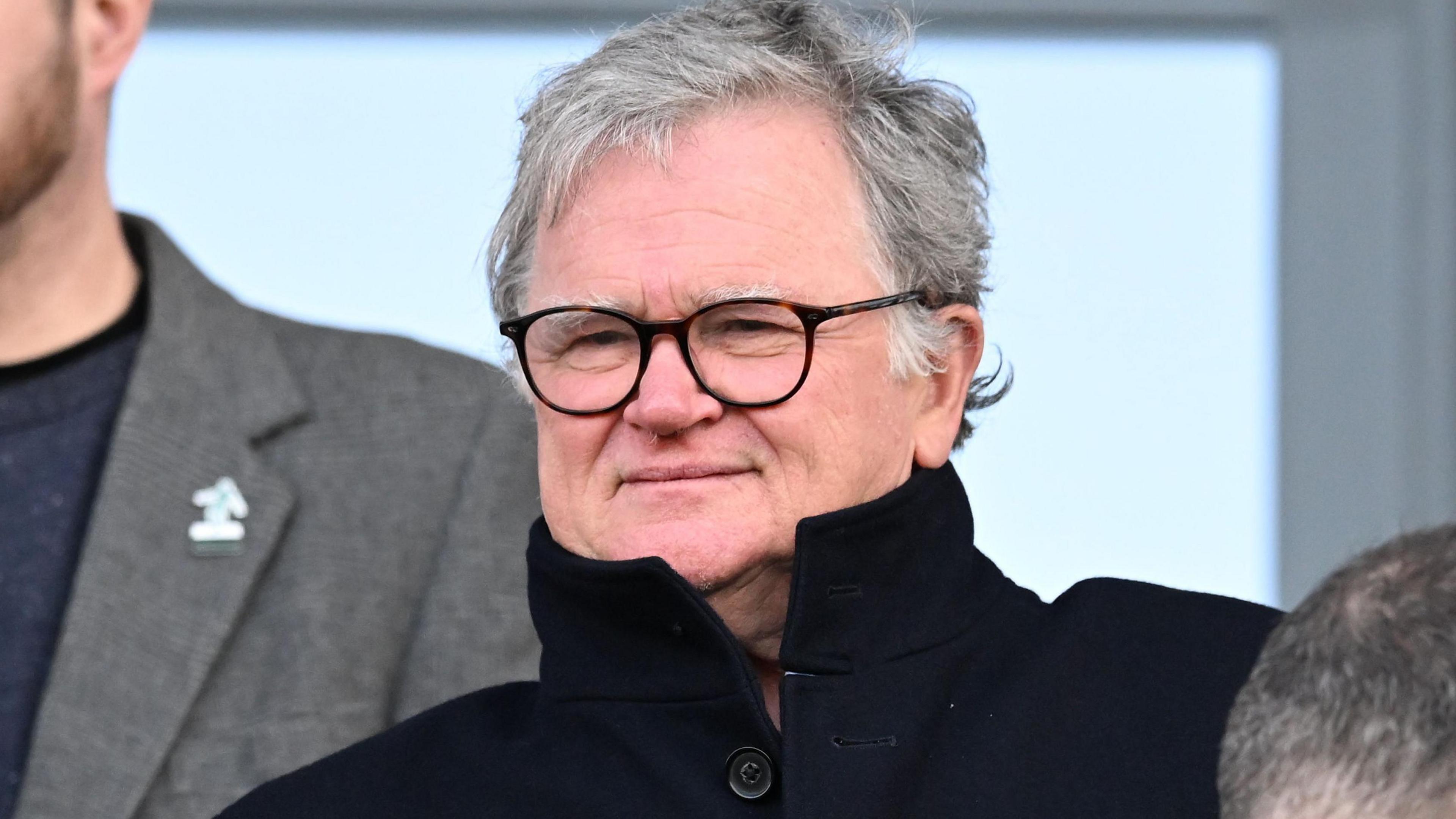 IMAGE SOURCE, SHUTTERSTOCK
IMAGE SOURCE, SHUTTERSTOCKSimon Hallett has been majority shareholder at Plymouth Argyle since 2018
The man ultimately responsible for making those appointments is owner Simon Hallett.
The locally-born businessman is based in the United States and has been responsible for a transformation at the club – especially off the field.
Since taking full control in 2018 he has rebuilt the Mayflower Stand, is constructing a new training ground, has led the club from League Two to the Championship.
He also oversaw the Pilgrims’ famous FA Cup run last season that resulted in wins over Brentford, and more memorably Liverpool, before bowing out at Manchester City.
“When it comes to Simon, it’s probably only really in 10, 15, 20 years that we will truly appreciate how good a chairman he’s been,” says Bell.
“Have we taken our eye off the ball?
“You look at the recruitment of this summer and it’s very easy to say when you’re four points adrift and 24th in the league that it’s very easy to bash the club with a stick.
“But we all had serious doubts from almost the second or third signing this summer about what direction we were heading in.
“The mixed messages out of the club as well in recent months have been really frustrating.
“My support of Hallett hasn’t waned. I think Simon’s still doing a good job. Now does that mean somebody can come in and do a better job? No.
“The fear of the unknown is what will hold you back, and whilst yes, we should always be forever grateful to Simon for the body of work he’s put in, that also doesn’t mean we shouldn’t be fearful of what could come after him.”
Hallett is actively looking for new investment.
He sold a chunk of the club to a United States-based consortium in August 2022 only to buy back part of that stake a year or so later.
A deal to sell a stake to investors earlier this year fell through, leaving Hallett as the majority shareholder as he continues to look for “the right investor, not the quickest investor”.
Hallett’s aim to make Argyle sustainable has meant cutting their cloth to fit.
Earlier this month head coach Tom Cleverley talked about the Pilgrims recruiting from “largely League Two or the bottom of League One” while he felt sides such as Huddersfield Town are recruiting from clubs in the Championship and top flight.
“Development players are fine as long they’ve got players with more experience to work alongside, but they don’t really seem to have that,” says Richardson.
“They’re regularly one of the youngest, if not the youngest starting 11s in the Football League and I think it’s really caught up with them.
“They’re very, very porous at the back, they just can’t seem to keep clean sheets, I think they’ve only had two or three all season.
“Teams manage to find a way through them remarkably easily, often with direct play – we saw that at Exeter City which seriously damaged them and they’ve never really recovered from that defeat.”
Can Argyle get back to winning ways?
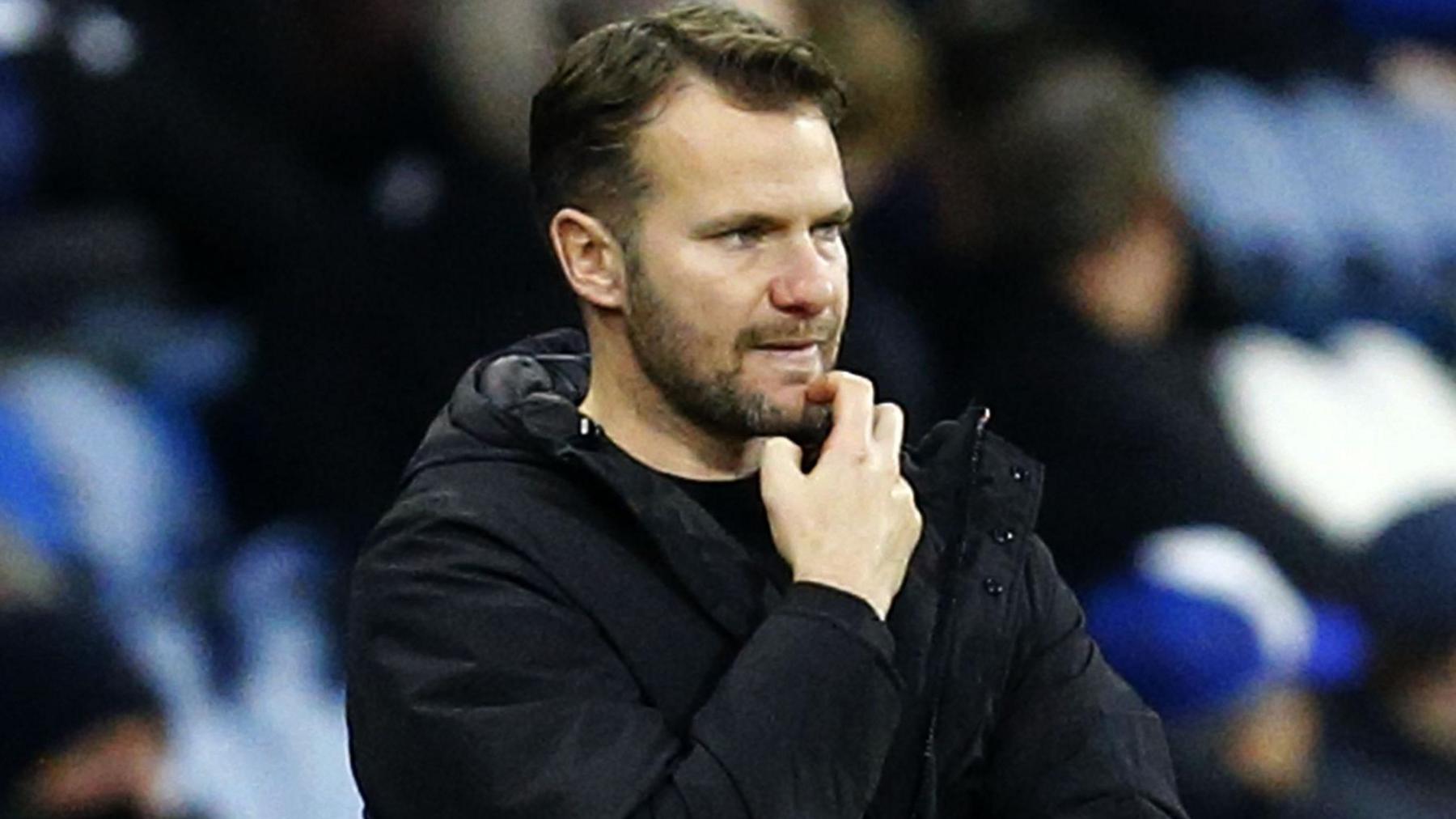 IMAGE SOURCE, SHUTTERSTOCK
IMAGE SOURCE, SHUTTERSTOCKTom Cleverley has won seven and lost 12 of the 21 games in all competitions he has had in charge at Plymouth Argyle
How about the head coach? When a team loses six games in a row, many anticipate him to be fired. While some believe it is time to put Cleverley’s position on the line, others believe he has had his hands tied by poor decision-making above him and player injuries.
Summer signings Xavier Amaechi, Caleb Watts, and Jack MacKenzie have all been sidelined for an extended period of time, while experienced players like Julio Pleguezuelo, Conor Hazard, and Joe Edwards are either currently injured or have recently returned to fitness.
“I don’t think Tom Cleverley is solely to blame,” Bell says. “That’s not to say Tom Cleverley isn’t to fault, because some of the decision-making in games, how we set up, and other things are just so terribly wrong at times.
“But it almost appears like the crisis extends beyond the head coach since we are disorganised off the pitch and lack organisation.
“Do I think a change of head coach would necessarily change anything?” he enquires. “I don’t know because I don’t own a crystal ball.
“However, based on what I’ve seen over the last three, four, and five games, do I believe Tom Cleverley has the ability to fix it and turn it around?
I have my doubts, as difficult as they are, because I do not want us to become something like Stoke City in this tier. “But I’m struggling to see any signs of positivity moving forward with how we’re setting up and how we’re playing.” So, how does it become better?
How can a team that many expected to contend for a play-off spot before the season began escape the relegation zone? “It doesn’t matter about performances, it’s all about results,” Bell explains.”
If that means we have to go into every game with two banks of four and win 1-0 every week with a set piece goal, so be it, because performances will not get you out of the relegation zone; only results will.
“It’s about now rolling the sleeves up, digging in, fighting for everything, fighting for your brother who’s next to you on the pitch.”
Argyle’s next chance to roll up their sleeves is a trip to Port Vale on Saturday, a team one point and two places higher than them, and the outcome could have a significant impact on the mood and fortunes at Home Park in the coming weeks and months.
Read more on Straightwinfortoday.com

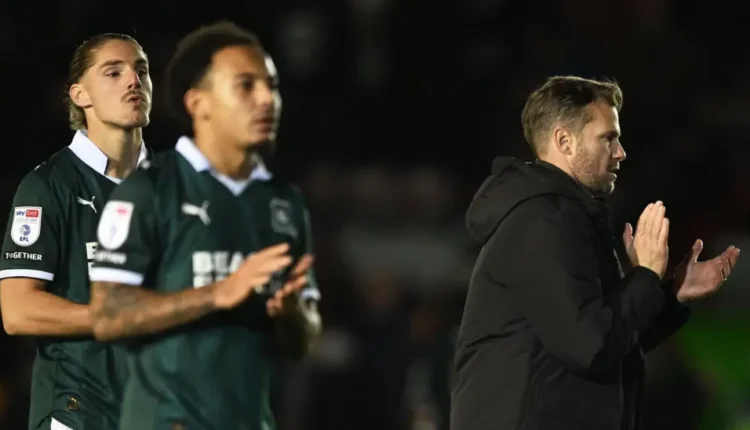
Comments are closed, but trackbacks and pingbacks are open.